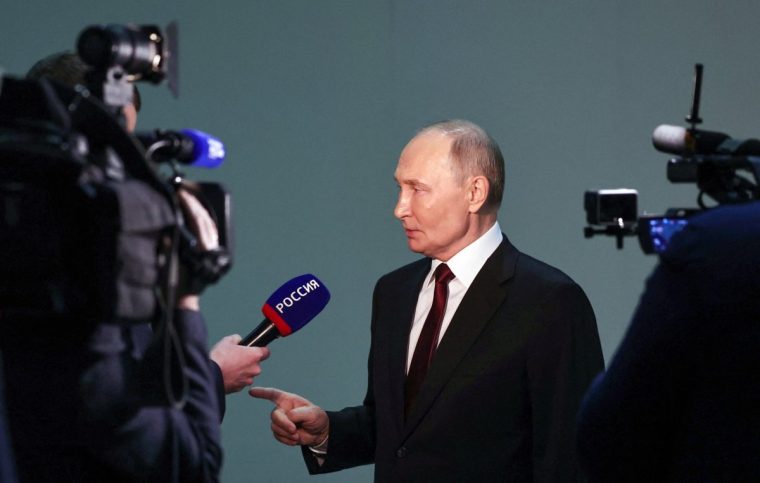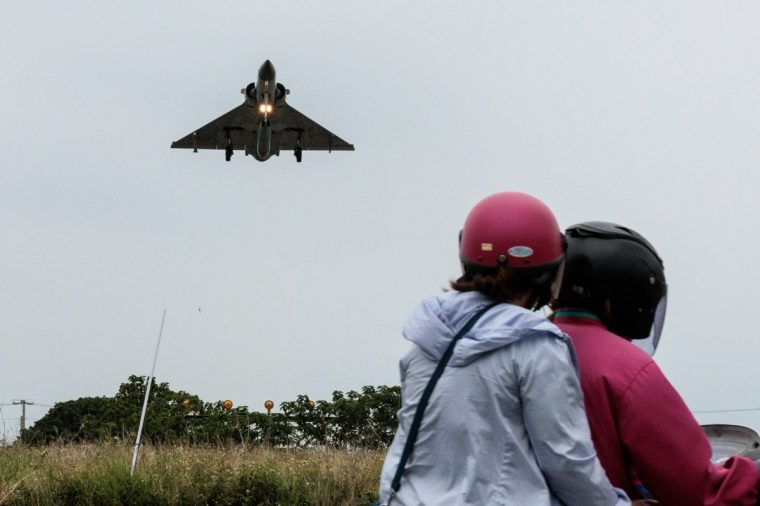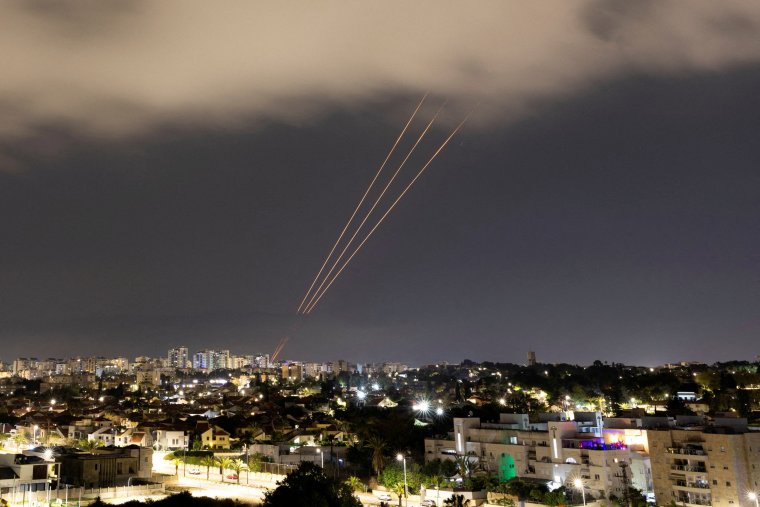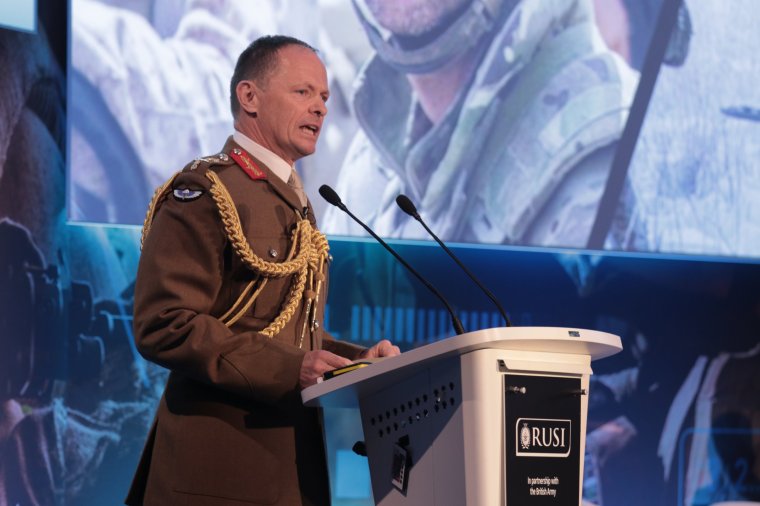Geopolitical turbulence has dominated 2024, with more conflicts raging around the globe than at any point since the Second World War.
But as the New Year dawns, the military is bracing for a new set of threats.
The risk of all-out war may not be imminent, but MPs and defence insiders have urged the UK Government to bolster military capabilities as the war in Gaza escalates into a wider regional conflict, and the war in Ukraine shows little sign of abating.
Defence experts including former senior military officials share their predictions for the most significant geopolitical hotspots in 2025:
Russia
Russia is “the threat with closest, most plausible, and most immediate ability to cause catastrophic damage” for the UK, according to Keir Giles, a Russia expert at Chatham House and former adviser at the UK military’s Defence Academy.
This could include cyber attacks, information warfare, energy cut-offs, assassinations, sponsored terror attacks or even direct missile attacks.
Mr Giles said: “Missile strikes on population centres, like those that have rained on Ukraine, are beyond the comprehension of most of the UK population, and yet together with strikes on sea ports, airports, national and Nato command centres and more, this would be an immediate risk in any open confrontation with Russia.”
The author of Who Will Defend Europe? said he did not believe the UK was prepared, raising concerns about the adequacy of homeland air and missile defence systems and the lack of civil defence preparation.
Defence sources insisted the military takes a multi-layered approach to air and missile defence with cooperation from the Air Force, Navy and Army and a wide range of advanced capabilities.

The UK is “an adversary by default” for Russia because of its opposition to President Vladimir Putin’s plan to dominate eastern Europe and reshape global rules, Mr Giles said.
“Since early 2024 there has been unprecedented unanimity among European and North American intelligence and defence chiefs that Russia is preparing to mount a military operation against a Nato state in the near future,” he said. “Where there is disagreement, it is not over whether Russia will attack, but when.”
Mr Giles said this threat was likely to be the highest between three and five years time. However, an end to the war in Ukraine, which Donald Trump has vowed to bring about as soon as he is inaugurated as US President in January, could bring this about sooner.
“In the event of a cessation of major combat operations in Ukraine under any circumstances other than convincing defeat for Russia, the level of threat from Russia will increase rapidly and substantially.”
The Indo-Pacific
There are growing concerns that China could invade Taiwan, which it claims is part of its territory, especially after it launched major military drills around the island. It simulated a full-scale attack on the island twice this year.
The US has said it would defend Taiwan if there was an invasion, raising the possibility of all-out war between China and the US which would cause mass casualties and shatter global trade.
The UK has supported Taiwan militarily and is closely allied to the US, meaning it could be drawn into the conflict in some form.

(Photo: Yasuyoshi Chiba/AFP)
There are also concerns within the UK military that a diversion of American resources to the Indo-Pacific would leave Europe having to stand alone against Russia.
“In case of conflict in the Indo-Pacific, the UK’s job is not to send carrier strike groups, it’s to lock the back door with NATO in the EU,” said Matthew Savill, director of military sciences at RUSI.
Lord West, the former head of the British Navy, described the situation as “very worrying” but said he believed China did not want war.
“I don’t think it’s likely that they will invade Taiwan, because an invasion of Taiwan is a hugely complex, amphibious operation, and I don’t think they’re capable,” he said.
“Their top generals don’t like wars – I know, because I know them. The reason they don’t like them is they’re unpredictable, and they don’t like unpredictable things.”
Iran-Israel
A long-term proxy war between Iran and Israel this year erupted into violence, with Iran launching a barrage of missiles at Israel for the first time in what it said was retaliation for an attack on its consulate in Syria.
Lord West suggested this conflict could escalate as Israel seeks to eradicate the threat from Iran altogether.
“[Further conflict] won’t necessarily defeat Iran… and we could be left with an Iran that is very violent and unpleasant, with trouble in a number of countries,” he said. “Any war itself would be very destructive and very damaging to global trade.”
Lord West said any escalation between Iran and Israel would see the UK “inevitably pulled in”.
“We’ve got forces in places like Bahrain and ships in the region. I don’t think anyone will put troops into Iran, maybe some special forces. I think it’ll be all bombing and standoff attacks,” he said.
“Conflict in the Middle East is going to be something that rumbles on and goes up and down in temperature as to how bad it is throughout next year.”

Mr Savill said the Iranian nuclear threat could increase significantly in 2025.
“The Iranians are so close [to having nuclear weapons], they are a threshold power. There will be some in the regime who say that the incoming Trump administration could provide an opportunity to close a new deal, but there will be others who say, ‘we can’t trust Americans, we’re on the back foot, let’s move towards a nuclear weapon,'” he said.
“This matters for the UK because we could be sucked in. If the Iranians respond to any military strikes by launching missiles at the US naval base at Bahrain, we’ve got people there. We’ve got an air component in Qatar, ships in the Red Sea, we’re there. It could expand uncontrollably.”
A coalition of Russia, China, Iran and North Korea
These key threats are most potent when taken together.
General Sir Roly Walker, the new head of the army, warned this year that Russia, China, Iran and North Korea are increasingly collaborating as an “axis of upheaval”.
General Sir Roly predicted these threats would “converge” in approximately 2027 but said their growing cooperation is already being felt.
Neil Brown, a Distinguished Fellow at the Council of Geostrategy and retired Royal Navy Commodore, said: “The presence of North Korean troops and artillery shells, and Iranian drones in Ukraine… should remind the UK and its allies to avoid a false choice between focusing on the Euro-Atlantic and the Indo-Pacific.”

These four nations may also attempt to expand their power in other countries in 2025, particularly in resource-rich parts of Africa.
“China has invested heavily in the Global South – the votes in the UN General Assembly on Ukraine showed its impact,” said Commondore Brown.
“Russia has invested in Africa through groups like Wagner providing protection to regimes and establishing interests in mining. The question will be what happens to their African ambitions if Russian loses its bases in Syria [after the fall of Assad]?”
Last year, Mali and Eritrea joined Russia and its long-term allies in voting against a motion condemning the invasion of Ukraine.
During a 2022 vote, three countries which have been linked to the Wagner mercenary group – Mali, the Central African Republic, and Sudan – abstained. However, many African countries linked to Wagner have voted against Russia on UN votes too.
A Ministry of Defence assessment of geopolitical trends said the African continent’s wealth of resources means “external actors will increasingly compete for influence and access” which “could see the continent becoming divided and weakened by competing alignments, leading to an increase in tensions and potentially hampering regional integration ambitions”.
AI, climate and economic woe worsening threats
Many of the key threats from state actors will be compounded by environmental, economic and technological changes in 2025.
Ambassador Mitchell Reiss, a former special envoy to US President George Bush, said a shift in economic policies under Trump, combined with the existing cost of living crisis, could cause unrest.
“What will protectionist measures, such as tariffs, do to the world economy in terms of jobs lost and domestic poverty or unrest? What would another global banking crisis look like? What happens if oil prices spike, and what would cause them to do so?”
The Ministry of Defence briefing also warned the “exponential growth in sensors, data, storage, processing power, connectivity, advanced data analytics, automation and artificial intelligence” will increasingly “impact on virtually every area of human endeavour and lifestyle”.
“The desire to secure technological advantage will play a central role in global power competition in future decades, influencing international relations and trade,” it said.
It also warned the effects of climate change would become “increasingly evident and more extreme” in the coming years and that “increasing demand for resources will place additional pressures on the natural world, including in the shared spaces”.
The race to transition to green energy could also lead to “societal disruption, grievances and tensions”, and that the resources required to enable the digital and energy transition, such as metals and critical minerals, will have increasing geopolitical importance.
What needs to be done to meet the threats?
Lord West said that whatever happens in 2025, the UK should increase defence spending and must “step up to the plate in terms of willingness to fight to defend Europe with our European allies, as well as Nato” – especially because the UK is the alliance’s “key maritime provider”.
But the former Navy chief also said the UK should not shirk from involvement outside of Europe.
“The world is global. We need to be involved in the in the Gulf region, with Iran, and we need to show America that we’re willing to support them,” he said. “We can’t withdraw into Europe and say that’s it, because Europe doesn’t exist on its own.”
Commodore Brown said the “geopolitical outlook demands that Western countries significantly increase defence spending”.
The Labour Government has committed to raising defence spending to 2.5 per cent but has not laid out a timeline for doing so.
“[Increased funding] has to start in 2025 and be threat-led and focused on reasserting deterrence,” he said. “This is not the time to decide that defence should make do with what the Treasury believes it can spare. The priority should be our expeditionary capabilities; those units that can by their nature be sent where we need them most.”
There are also suggestions that the Royal Navy should consider postponing or scaling back a major military deployment which will see large swathes of its force travel to the Indo-Pacific.
Mr Savill suggested this could make the UK less able to respond to a naval threat from Russia, particularly at time of prolonged funding cuts.
“We need [the operation] to demonstrate capability and bring the carrier group up to full operations, but the Navy is already a couple of ships smaller than 2021, so what’s it going to have left? It’s an important deployment, but does that plan survive contact with reality?
“There have been cuts recently, and there will be more savings required in the 2025/2026 financial year,” he said.
“There is a genuine, big question around what a Carrier Strike Group deployment looks like to Indo-Pacific. It’s currently the whole Navy sailing off – so who dealing with Russian submarines or the High North?”
Defence sources said the operation demonstrated the UK’s commitment Indo-Pacific security.
A Ministry of Defence spokesperson acknowledged that threats were increasing, the world was more volatile and technology was changing the nature of warfare but said the Government would “always do what it takes to defend this country”.
“That is why the Budget increased defence spending by £2.9bn for next year and we are committed to setting a path to 2.5 per cent of GDP on defence in the spring.
“In Kyiv this week, Defence Secretary John Healey committed to stepping up UK leadership on Ukraine throughout 2025 to ensure Putin does not prevail.
“Additionally, the Strategic Defence Review is working at pace to look at the threats we face and the capabilities we need to meet the challenges, threats and opportunities of the 21st century.”


